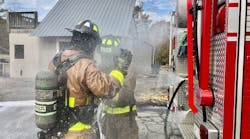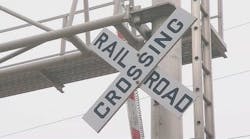Dec. 19-- Pittsburgh can cut costs -- including employee overtime -- using the financial management system it shares with Allegheny County, city and county officials told the city's financial oversight board on Wednesday.
Their assertion was made on the same day city Controller Michael Lamb released an audit indicating overtime costs are "out of control" in the Fire Bureau. Lamb blamed escalating overtime on a union contract that requires the city to have at least 163 firefighters on duty at all times.
"It's been out of control in both years that we looked at," Lamb said in his office at the City-County Building.
About six blocks away, a consultant told the Intergovernmental Cooperation Authority that the Oracle financial management system won't tell the city exactly how to cut costs, but it will generate reports to show where and when overtime happens.
Nancy Marx, a business intelligence consultant with Oracle, said the system would permit city officials to compare overtime costs to past years and make adjustments to cut costs.
"It's taking data and turning it into information to make decisions, or more specifically, how do we use that to cut costs," she said.
County Controller Chelsa Wagner said the county saved "hundreds of thousands of dollars" since it began using the system in 2002. Pittsburgh consolidated its financial system with the county's in January.
The city will begin putting its payroll information online in 2013 at a cost of about $1 million, said Finance Director Scott Kunka, adding that Pittsburgh will save about $400,000 annually by doing the work in-house.
Lamb's audit indicates overtime for city firefighters was $548,335 over budget in 2010 and $1.4 million over budget in 2011. It represented 21 percent of fire bureau expenditures in 2010 and 23 percent in 2011.
Overtime for all city employees in 2010 totaled $31.3 million, about 16 percent of the $193 million payroll. In 2011 it totaled about $33 million, about 17 percent of payroll. Most of the overtime pay went to public safety departments, including police, fire and emergency medical services.
In discussing the firefighters' overtime, Lamb noted that the number of structure fires has decreased to fewer than 200 per year. He recommended that the city negotiate lower staffing levels when the firefighters' contract expires in 2014.
"We think that number can come down," Lamb said.
Firefighters also respond to alarms, crashes and emergency medical calls.
Lamb added that firefighters' overtime also adds to the city's pension obligations. Firefighters are the only city employees whose pensions are calculated on their total pay instead of their base salaries.
Public Safety Director Michael Huss said the city has a new class of firefighter recruits starting in January and the additional personnel will help reduce overtime.
"Pittsburgh firefighters do a great job at protecting life and property, and we are proud to have one of the best response rates in the country," he said in an email.
Darrin Kelly, a trustee with International Association of Firefighters Local 1, said minimum staffing levels allow firefighters to reach fires and accidents quicker.
"Not only does it give you a full complement of firefighters, but we also have enough hands to do the job we need to do without getting hurt," Kelly said.
He said the number of firefighters dropped from 896 in 2005 to 590, a period when the city closed six fire stations. The personnel cuts and station closures saved the city $86 million, he said.
Bob Bauder is a staff writer for Trib Total Media. He can be reached at 412-765-2312 or [email protected].
Copyright 2012 - The Pittsburgh Tribune-Review





